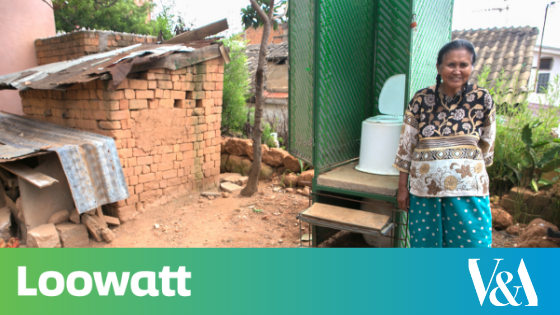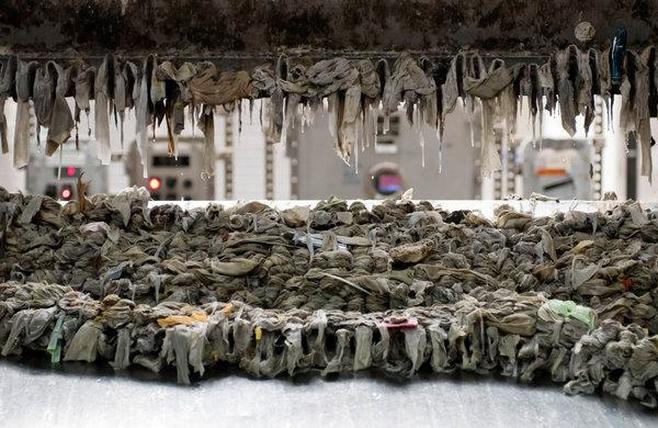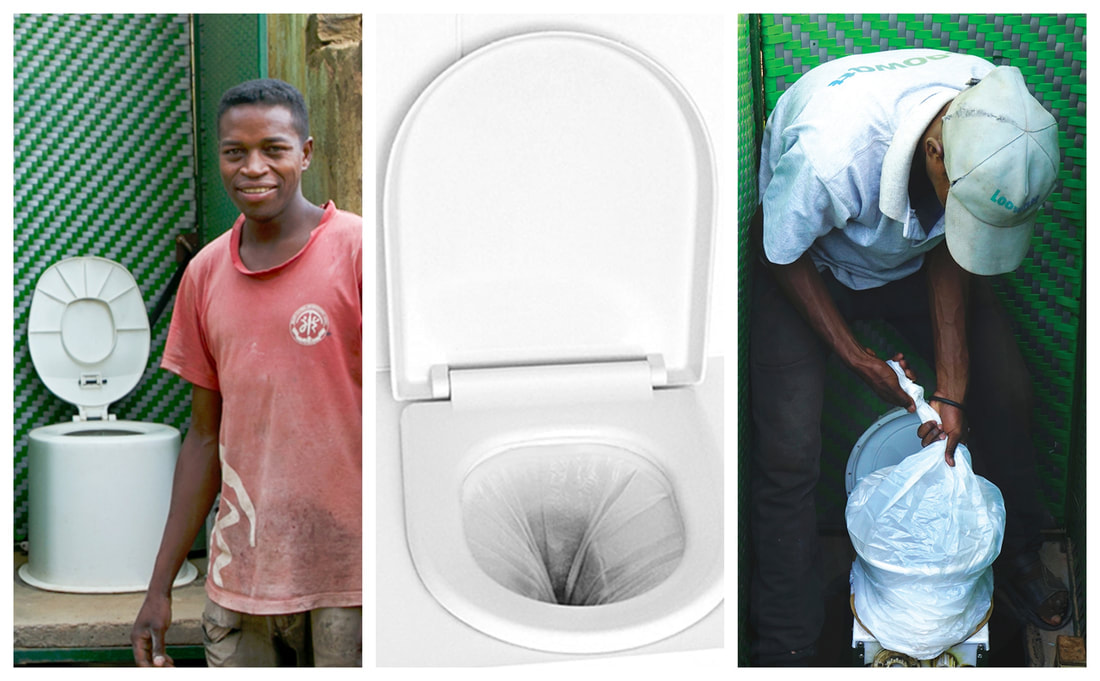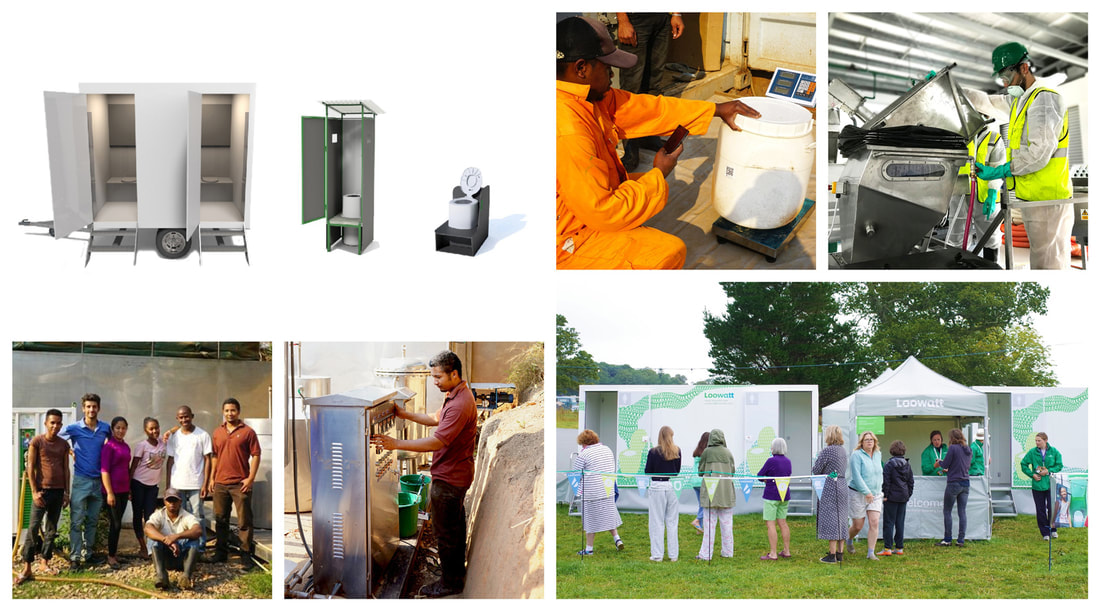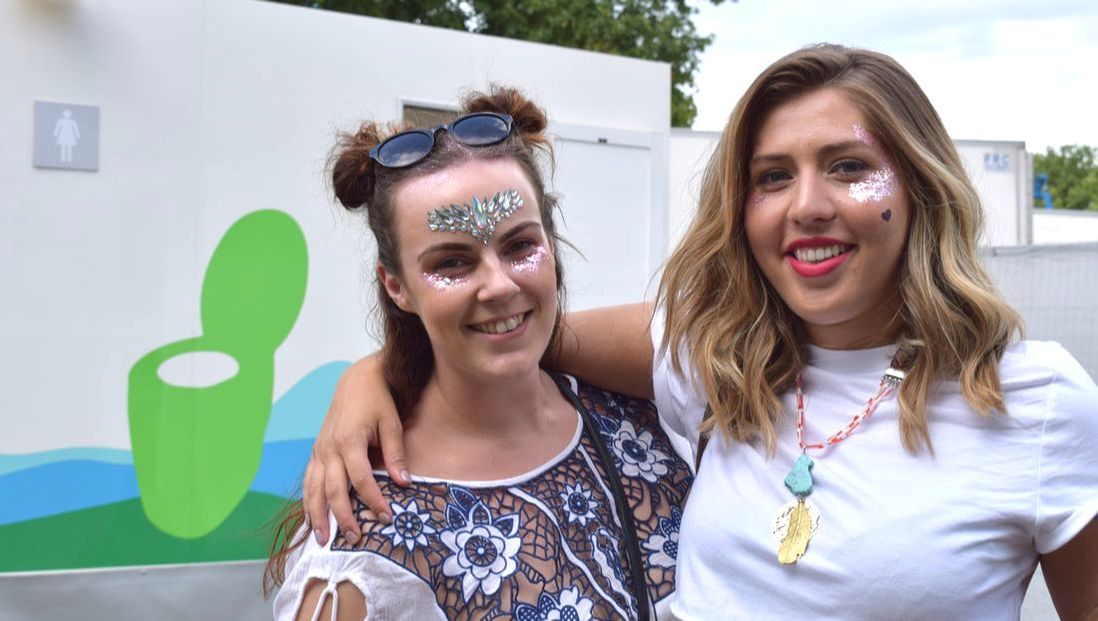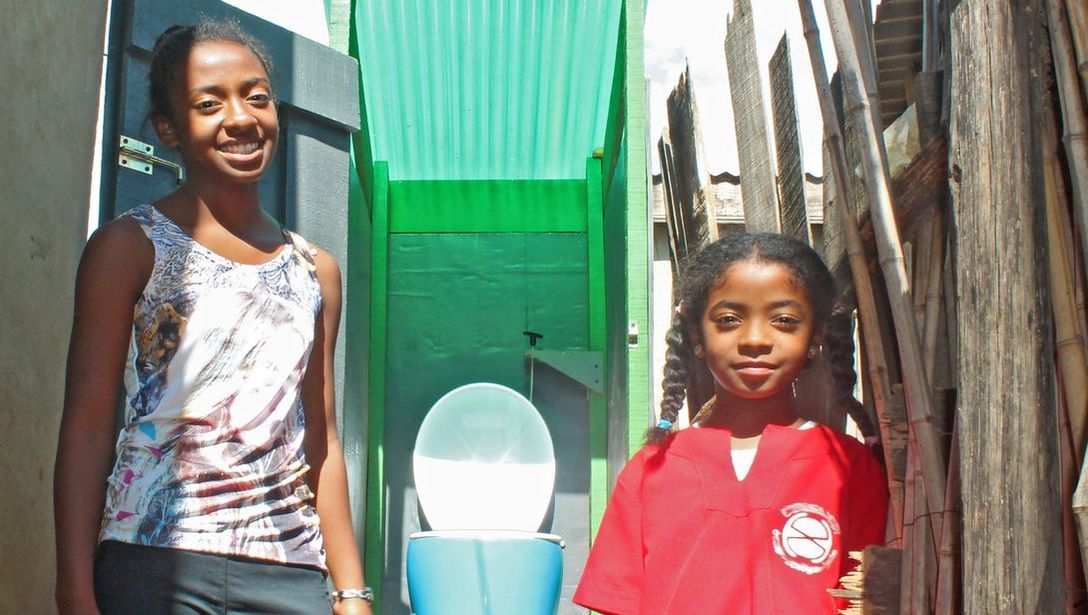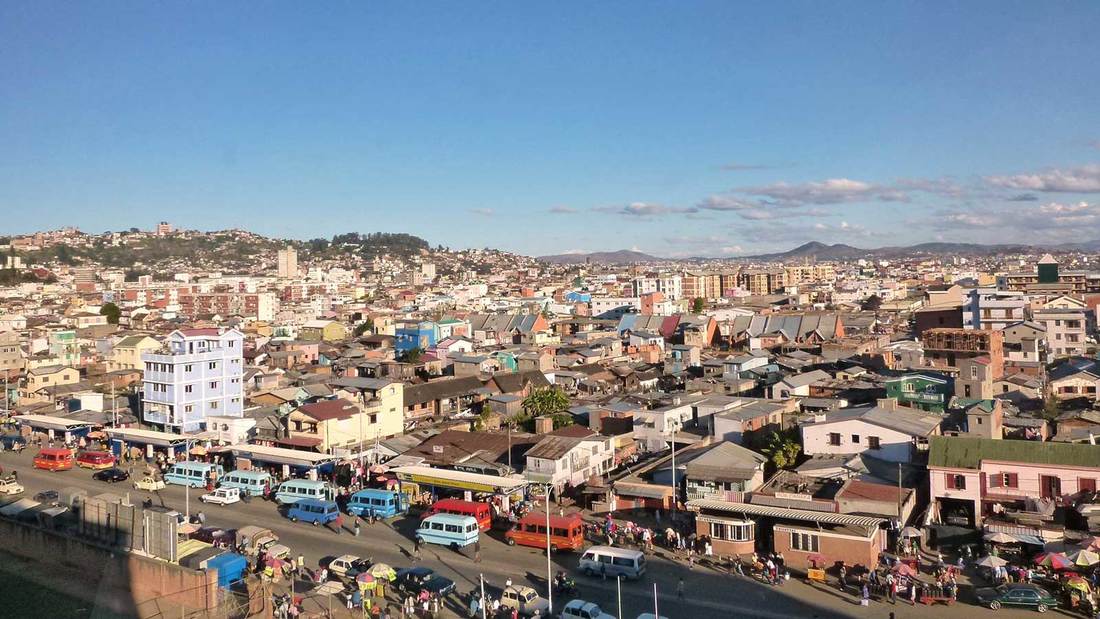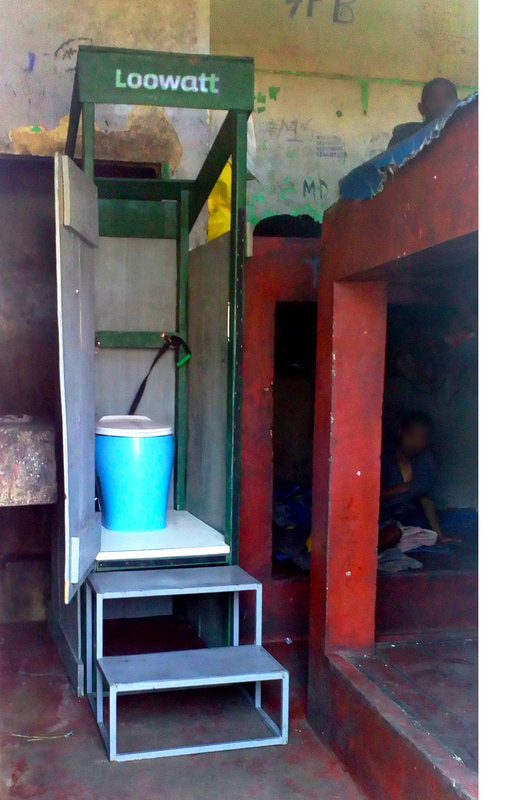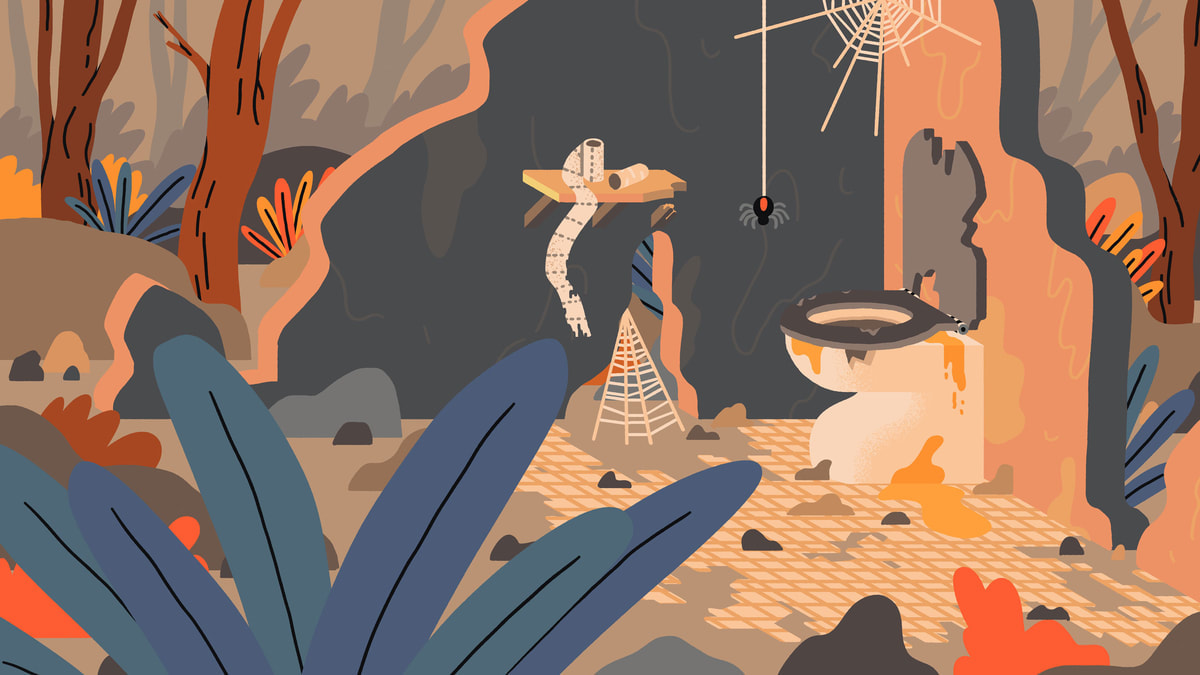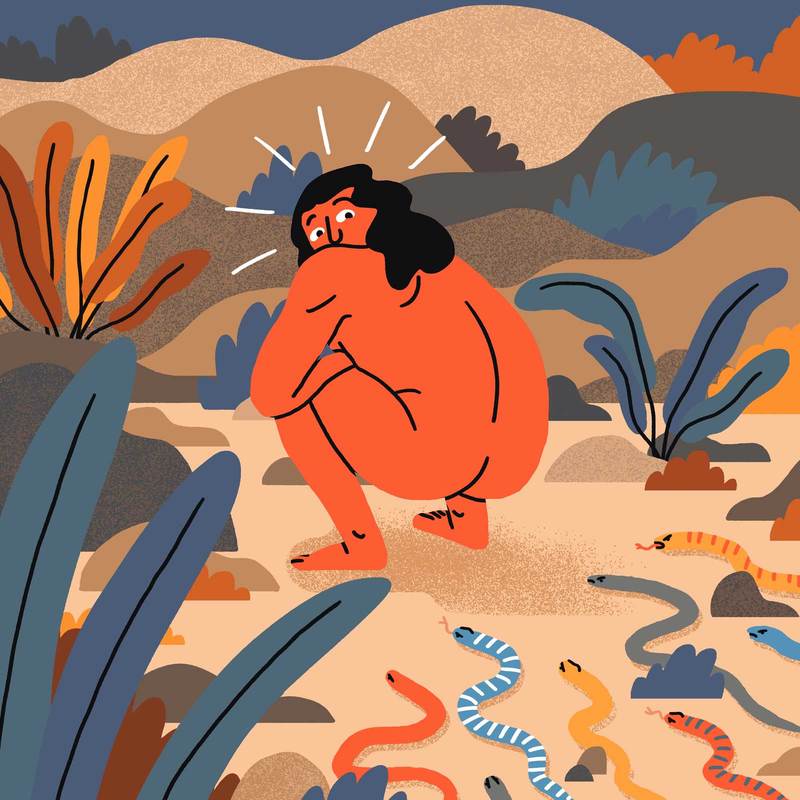|
Written by: Virginia Gardiner - CEO Loowatt
Loowatt is flush with happiness to be the only sanitation solution featured amongst 70 contemporary projects in the highly anticipated V&A exhibition opening this Saturday, 18th May 2019. In a world-famous museum, going to the toilet is not usually part of their exhibition experience. Happily, the V&A has embraced this natural necessity as a logical component of their upcoming exhibition about food, the Loowatt waterless flush toilet sitting pretty in the ‘compost’ section of ‘FOOD: Bigger than the Plate.’ Loowatt’s presence at the V&A comes hot on the heels of our winning the ‘Game-Changer’ Prize last week at Cleantech Innovate 2019, a leading annual showcase of game-changing clean technologies. I am likely biased, but I sense there is an awareness and sentiment shift occurring on a mainstream level about the importance of sanitation as a world health challenge. Given 4.5 billion people lack access to safely-managed sanitation and 1 million deaths each year are caused by fecal-borne illnesses, at Loowatt we are glad it’s becoming more palatable to talk openly about serious shit that happens every day. FOOD: Bigger than the Plate is an exploration of how innovative individuals, communities and organisations are radically re-inventing how we grow, distribute and experience food. Our Loowatt waterless flush toilet deals with the inescapable byproduct of food, sealing human waste into biodegradable polymer film for anaerobic digestion. In the digester, human waste is converted into valuable renewable energy and fertiliser; so upon reflection, why wouldn’t an innovative sanitation solution take centre stage when talking about the food cycle? Bravo to the exhibition curators for taking this bold step and bringing the important subject of sanitation out from behind closed doors.
0 Comments
A mechanical rake collecting solid waste (Karsten Moran for The New York Times). Both sewers and on-site sanitation systems face increasing challenges due to climate change, as highlighted by recent droughts and floods in global cities such as Cape Town and Jakarta.[1] 29% of the world’s population is served by basic sanitation: Latrines and septic tanks where waste is untreated, spreading disease rampantly, especially in floods.[2] For the 38% with access to sewers, a whopping 25% of those actually don’t lead to safe treatment.[3] And in a world where two-thirds of the population will be living in water-stressed areas by 2025,[4] more sewers won’t be the answer. For 21st Century solutions to deliver on the promise of Sustainable Development Goal 6.2—delivering safely managed sanitation, while protecting the world’s scare water resources—we need to look beyond sewers and latrines. After all, when we take away the sewers, the sanitation challenge is to transport fecal waste from household to treatment and to deal with the “un-flushables,” foreign solids, that are inevitably disposed of in toilets whether on-site or sewered. We need to consider how we integrate fecal sludge management into broader solid waste management. Solid waste and human waste often travel together. In the UK, Thames Water has said that it clears five blockages from its sewer network every hour, and removes 30 tons of diapers, menstrual hygiene products and baby wipes that were flushed down toilets into its network every single day.[5] In countries with weaker fecal and solid waste management, this waste travels down waterways: It should not be surprising that 90% of the world’s ocean plastics come via 10 rivers, 8 in Asia and 2 in Africa: Regions with growing populations where waste systems lag behind.[6] What can municipalities do with these filthy traveling companions? At Loowatt, we have been thinking about these problems, and how we can link up solutions. Because our sanitation technology uses polymer film to facilitate a waterless flush and clean servicing, we developed the mIBS pre-processing equipment, a flexible, mobile machine, that separates polymer film, as well as “un-flushables,” for separate treatment. The organic waste stream is then ready for pumping direct to anaerobic digestion or other value-generating treatment. We have discovered many benefits to this approach. Not least, Loowatt can accept the inevitable reality of menstrual hygiene products—an oft-maligned challenge for most toilets. The separated film and “unflushables” then comprise about 2% of Loowatt’s waste stream, and must also be treated in appropriate closed-loop systems. Early on, Loowatt worked with a polymer film that dissolved in anaerobic digestion in 7 days, but production ceased. After switching to partially digestible and fully compostable films (European standard EN13432), in 2018 we began testing dual material approaches—compostable film sent for industrial compost, and polyethylene film sent for recycling. The latter option posed some technical challenges as the film output, while dry to the touch, is still fecally contaminated. Both, however, proved feasible and are now being analysed for cradle-to-cradle lifecycle. From the standpoints of both logistics and technology, integrating fecal sludge and solid waste management offers great opportunities: linking up collection systems, optimising energy yields from co-digesting organic wastes, and applying appropriate treatment to all non-organic wastes. Domestic waste collection has proven successful in many municipalities, with “zero waste cities” starting to happen, and emerging market cities stepping up waste collection through results-based financing from the World Bank. With the right mix of logistics and technology, fecal sludge from waterless toilets and solid waste from households could both be on the road to reuse and recycling systems, to ensure a cleaner future. Loowatt are attending Word Water Week in Stockholm. We will be exhibiting alongside the RELX Group (Norra Latin, Ground Floor, MV7) and are grateful for their support since winning the RELX Group Environmental Challenge in 2016.
Footnotes [1]https://www.ft.com/content/7c748386-8f95-11e8-b639-7680cedcc421, https://www.bbc.co.uk/news/world-asia-44636934 acc. 18/08/18 [2] JMP Report, Progress on Drinking Water, Sanitation and Hygiene, 2017 [3] Ibid. [4] http://www.un.org/waterforlifedecade/scarcity.shtml acc. 18/08/18 [5]https://www.bbc.co.uk/news/av/uk-england-london-45200046/the-unflushables-blocking-london-s-sewers acc.22/08/18 [6]https://www.scientificamerican.com/article/stemming-the-plastic-tide-10-rivers-contribute-most-of-the-plastic-in-the-oceans/ 18/08/18 Loowatt supplies waterless flush toilets and sanitation solutions for global markets. We have been developing and testing whole value-chain sanitation hardware in the UK (public toilets) and Madagascar (household toilets) since 2013. We have been working with utilities in both countries since 2016. As of August 2018, our toilets have been used by over 100,000 customers and we have delivered 200 tonnes of fecal sludge to closed-loop treatment.
We are often asked, Why the ‘dual market’ focus? There are in fact many reasons for this strategy, but the single most important reason is, we’d be missing out on too much learning if we did things differently. Working with utilities internationally has taught us that despite geographic and economic differences, they face common challenges: Dealing with increasing water scarcity, delivering uninterrupted service, managing high operating costs, and trying to offset those costs through waste-to-resource. Working with utilities ensures that the technology we develop helps to better address their core challenges. Improving waste-to-resource: In the United Kingdom, Thames Water treats 90% of its sludge in anaerobic digestion systems and generates 15% of the energy it uses. They are constantly striving to increase the energy they produce, so to reduce their operating costs. Thames Water is working with Loowatt to analyse the value of captured waste from waterless toilets as a direct input to utility-run anaerobic digestion systems. They believe that Loowatt waste is likely to generate more financial return in treatment than toilet waste diluted by sewers or dosed with chemicals.[1] Optimising system capacity: In Madagascar, Loowatt has partnered with SAMVA (the waste utility) to gain access to the city’s treatment facilities. This partnership is providing Loowatt Madagascar the treatment capacity to scale our household service, while supporting SAMVA’s interest to have the facilities run at capacity. Providing a waterless toilet service to end-customers: In 2017, Loowatt participated in Laguna Water’s Portable Toilet Service pilot for the low-income, high-density areas of the Laguna Province. In the multi-criteria evaluation, Loowatt’s technology outperformed the other vendor’s, with the decisive criteria being financial performance and customer satisfaction.[2] We chock up much of this success to experience operating our own services in collaboration with utilities in two countries. What are the expectations for non-sewered sanitation? We believe that all government, municipal and utility stakeholders expect a robust service that supports broader public health. While the planning and financing of functional sewer and treatment systems is well understood, less is clear on how to include non-sewered sanitation service approaches. For governments, municipalities, utilities and financiers to take on the hard work of building the frameworks and financing for new sanitation solutions, they need assurance that those solutions will meet high standards. From our experience, this means that new sanitation solutions must:
Technology providers like Loowatt that meet these criteria must work with governments, municipalities, and utilities to show that non-sewered toilets can, in operation, meet the needs of their constituents. By fostering more operational collaborations between technology providers and public partners, we can build a healthier living environment for our people and our planet. Loowatt are attending Word Water Week in Stockholm alongside the RELX Group (Norra Latin, Ground Floor, MV7). We are grateful for their support since winning the Environmental Challenge 2016. Footnotes [1] Thames Water Innovation and Loowatt, IUK HIT-G Project 2017-2018 [2]Utility Business Model (Piloting the PTS in Laguna, Philippines): https://forum.susana.org/161-sanitation-as-a-business-and-business-models/22429-utility-business-model-piloting-two-portable-toilet-systems-pts-in-laguna-philippines 21st Century people - and toilet developers - need to mention menstruation.
“Happy Menstrual Hygiene Day” doesn’t exactly roll off the tongue. It’s probably not meant to, as it’s serious. May 28th was nominated by the NGO WASH United very recently, in 2014, as a day for people to “break the silence and build awareness that good menstrual hygiene management (MHM) plays in enabling women and girls to reach their full potential.” Period Poverty is a worldwide problem with tragic consequences—girls missing school, which not only thwarts hopes and dreams, but exacerbates global inequality. Even more important than hygiene is social acceptance—as expressed powerfully by Aranya Johar’s video for WASH United. While it’s probably fair to call menstruation a monthly inconvenience, it’s time to drop the stigma. May 28th is a day to be proud of this part of our biology and say thanks to those who do this species-preserving job every 28 days. When we do talk about hygiene, we are often talking about products that help manage this monthly reality—which, due to stigma aforementioned, are often called “unmentionables.” To give them some mention: there are innovative technologies that are changing menstruation management, and great initiatives that make menstrual management affordable and accessible. But most such products are fast-moving consumer goods made of natural and synthetic materials, i.e., tampons and pads. And in the UK at least, a whole lot of these disposals are flushed down toilets. As we rethink toilets for the 21st Century, we have the opportunity to better manage menstrual hygiene—and most certainly, designers and developers need to start by talking about this reality. Loowatt’s technology manages menstrual hygiene waste by processing all toilet waste—waterless flush packaging and whatever is flushed down—in a machine that shreds everything, and screens out larger objects for composting or other types of treatment. In an ideal future we might all find ways of managing our personal hygiene without producing waste—but in the case of menstrual hygiene, the first step is to mention the unmentionables. © Arcadia. Loowatt toilets have just landed at Arcadia Spectacular, a spectacle of cutting-edge engineering which marks the start of Loowatt's event season in 2018. Arcadia Spectacular features, among other things, a gigantic robotic spider built from disused military equipment and bursting with pyrotechnics powered by recycled cooking fuel. With its focus on changing the world through state-of-the art technology, uniting people across cultures, generating value from waste, and creating an unforgettable experience along the way, Arcadia couldn’t be a better place for Loowatt to start serving UK customers in 2018. As humanity looks into the future, what also brings us together is solving our toughest challenges through innovation. Did you know that 80% human waste today is disposed untreated? In other words, 80% of dumps are just dumped. Meanwhile, water scarcity is growing – by 2025, most of the world’s population will live in water-scarce regions. And in cities that have some of the world’s most developed sewage infrastructure, such as New York and London, raw sewage overflows into natural waterways almost every week. What a mess. So we need new sanitation solutions. And people are stepping up to the challenge – utilities, foundations, companies, researchers and even rocket scientists around the world are working to create toilets and sanitation systems that work without sewers. And in all likelihood, humanity and the planet will benefit: water saved, less pollution, and high-quality sanitation for everyone, everywhere. We are proud to be part of this global community. This weekend, people in London will use our waterless flush toilets at Arcadia, as part of a futuristic experience. At the same time, a few thousand miles south, our customers in Madagascar will be using the same technology in their homes, as part of everyday life. And in both places, Loowatt waste will be converted to value in anaerobic digestion systems. Which is all to say, the clean future is closer than we think.
In early October, while pneumonic plague was spreading in Antananarivo, the capital city of Madagascar, the youth block of the city’s central prison encountered an untimely and potentially deadly situation. The prison, which hosts 145 young people between the ages of 13 and 19, was required to enforce an isolation procedure, to avoid infection reaching the general prison community. The young offenders live in two cramped rooms, so transmission of the disease would be impossible to control and would inevitably result in a number of deaths. Such dramatic quarantine conditions are necessary; each year, the plague has claimed many lives within the prison. As the number of victims seems to have increased this year in the capital, the Malagasy people require help and support through this alarming epidemic. The untimely event that occurred, was the complete obstruction of the toilets serving each of the 2 rooms, leaving the young prisoners without a functioning toilet and with dramatically increased health risks associated with faecal contamination. With repairs to the prisons’ toilets estimated to take over a month, the NGO Grandir Dignement, which works to improve the conditions for incarcerated youth in Madagascar, reached out to Loowatt for an emergency solution.
In just two days, Loowatt was able to deploy toilets to the prison and teach the children on the hygienic use and servicing of the toilets. This quick and efficient intervention highlights the versatility of Loowatt’s technology, particularly in disaster relief situations. "Waterless sanitation systems can also be a source of renewable energy. Loowatt are a small UK-based company working to develop a clean, safe waterless toilet, and a system for turning waste into energy and fertiliser. With funding from the Bill and Melinda Gates Foundation, they tested their system in Madagascar.
Local people pay a small fee to use the Loowatt toilets in Antananarivo. The waste from the toilets is processed in a bio-digester, which produces methane gas and fertiliser. The methane can be burnt for cooking, or to produce electricity. People who use the Loowatt toilet in Madagascar can also charge their phones using electricity that comes from the waste." www.bbc.co.uk/programmes/articles/4H0R29Jy3JMkjP4vQr9hfGs/what-makes-the-perfect-toilet © Chester Holme "Traditional flush toilets aren’t an option in many parts of the world, but neither is leaving people with unsafe and unhygienic choices. Now, one company is piloting a new loo that's waterless, off-grid and able to charge your phone. Lina Zeldovich travels to Madagascar to witness the start of a lavatorial revolution." All content from this post is taken from Lina Zeldovich's article for Mosaic Science which can be read in full here. Lack of toilets is not a problem unique to Madagascar. The World Health Organization (WHO) estimates that 2.4 billion people lack access to basic toilet facilities, and nearly 1bn can’t even do their business in private, practising so-called ‘open defecation’, resorting to fields, street gutters or creeks. Many countries, primarily in sub-Saharan Africa and South Asia, face similar sanitation challenges, says Francis de los Reyes at North Carolina State University, who designs sanitation management solutions for developing counties. In Loowatt’s waterless flush design, the waste is sealed into a biodegradable bag underneath the toilet with not a drop of water being spilled. Once full, the bag is replaced by a service team, and the waste is brought (yes, hand-delivered) to Loowatt’s pilot waste-processing facility, where it’s converted to fertiliser and biogas. © Chester Holme
Loowatt’s London-based founder and CEO Virginia Gardiner never thought she’d end up designing 21st-century toilets. When she graduated from Stanford University in 1999 with a bachelor’s degree in comparative literature, she couldn’t have been further removed from the engineering challenges of processing human waste. But then she went to work as a reporter for an architecture and design magazine, Dwell, covering industry events. “I was the youngest on the edit team. Nobody else wanted to go to the kitchen and bath industry shows, so I did,” she recalls. One of the things that struck her was that architectural concepts evolved constantly, except for toilets, which seemed to remain the same for ever. In their basic appearance, Loowatt toilets don’t look much different from our Western johns, with their plastic seats and flushing handles, which come in the form of a pedal or a rope you pull. But instead of releasing a swirl of water into the basin, this move activates the white biodegradable film that envelopes and seals the waste, pushing it into a collector underneath the toilet, all odour-free. Loowatt’s service team replaces the biodegradable bag once a week, or more often if it fills up sooner. The Loowatt setup isn’t free – residents pay about £12 as a deposit for a toilet (which remains Loowatt’s property) and about £3 a month for service. For Madagascar, where some families exist on £1 a day, this isn’t cheap. But Rartjarasoaniony tells me she finds it acceptable. Maintaining a latrine costs more. “We have to empty it every six months, and it is really expensive,” she explains, not to mention the unsightly mess it creates. The manual process is done by ‘informal emptiers’ – usually men who show up with buckets to chug the goo into containers, dropping splotches of repugnant gunk around the yard for her egg-laying hens to peck at. Does Loowatt’s approach have the potential to change how the world processes its waste? The company is working on introducing the concept to other countries – in Africa, Asia and Europe. In the UK, for example, Loowatt toilets are already being used at festivals and outdoor events, generating good revenue. “Here in Madagascar, the average price we can charge people to use our toilets is £3 a month,” Segretain says. “In the UK, with our festival toilets, if people pay as they go, they pay £3 per use. It’s a completely different scale.” All content from this post is taken from Lina Zeldovich's article for Mosaic Science which can be read in full here. |
Toilets |
|

